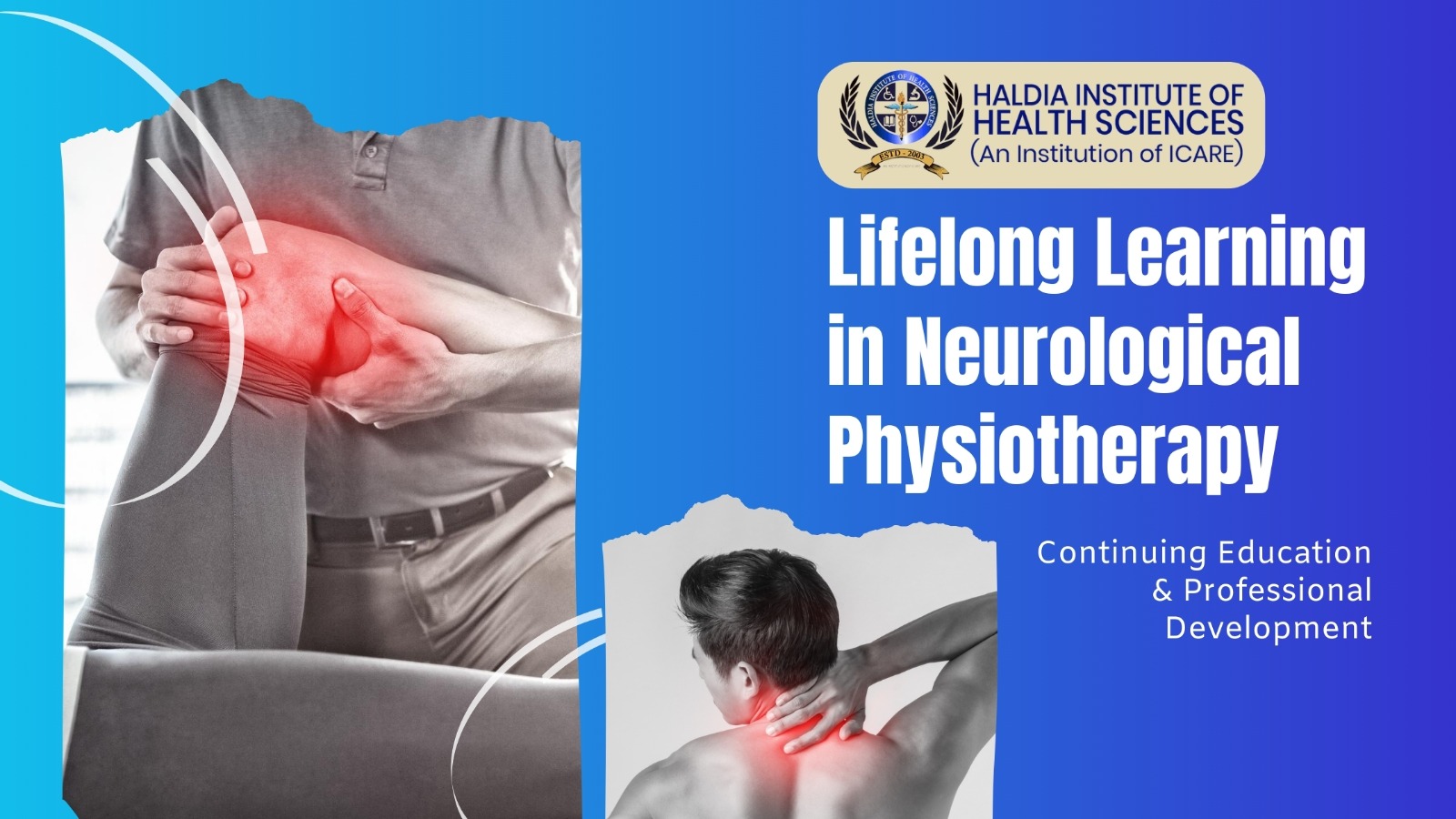Latest Notifications

Blog

Lifelong Learning in Neurological Physiotherapy: Continuing Education and Professional Development
In the ever-evolving field of healthcare, the need for continuous learning and professional development cannot be overstated—more so in specialized areas like neurological physiotherapy. As one of the top paramedical colleges in West Bengal, Haldia Institute of Health Sciences firmly believes in and advocates for the ongoing education of healthcare professionals to ensure they remain at the forefront of innovative treatment methodologies and rehabilitation techniques. This commitment to lifelong learning is particularly critical in neurological physiotherapy, where advancements in neurology and rehabilitation are transforming patient care and outcomes.
The Imperative of Continuous Learning
Neurological physiotherapy is a challenging and dynamic field that deals with disorders of the nervous system. Physiotherapists specializing in this area work with patients suffering from strokes, traumatic brain injuries, spinal cord injuries, and a variety of neurodegenerative diseases. The complexity of neurological conditions and the rapid pace at which new treatments are developed necessitate a commitment to continuous professional development.
Keeping Pace with Advancements
The landscape of neurological science and rehabilitation technology is continually changing. Recent years have seen significant advancements in neuroplasticity understanding, robotic-assisted therapy, and virtual reality applications in rehabilitation, among others. For neurological physiotherapists, staying updated with these advancements is not just beneficial—it is essential to providing the best care for their patients. Lifelong learning ensures that therapists can integrate the latest evidence-based practices into their treatment plans, enhancing patient recovery and quality of life.
Pathways for Continuing Education
Continuing education can take many forms, from formal coursework leading to advanced degrees to workshops, seminars, and online courses focusing on specific aspects of neurological rehabilitation. Professional bodies and associations in the field of physiotherapy often offer a range of continuing education opportunities for their members. Additionally, engaging with peer-reviewed journals, attending international conferences, and participating in professional networks are valuable ways to stay informed about the latest research and clinical practices.
The Role of Institutions
Institutions like Haldia Institute of Health Sciences play a pivotal role in fostering an environment that values and facilitates lifelong learning. By offering advanced courses, hosting workshops, and encouraging research, the institute supports its graduates and professionals in the field in their pursuit of knowledge and excellence. As the top paramedical college in West Bengal, Haldia Institute of Health Sciences is committed to producing healthcare professionals who are not only skilled and knowledgeable at the outset of their careers but who are also equipped to grow and evolve professionally over time.
The Impact on Patient Care
Ultimately, the commitment to ongoing education and professional development in neurological physiotherapy has a direct and positive impact on patient care. Therapists who are up-to-date with the latest advancements can offer more effective, personalized, and innovative treatment options to their patients. This not only improves patient outcomes but also contributes to the overall advancement of the field.
Conclusion
Lifelong learning in neurological physiotherapy is an investment in the future—a future where healthcare professionals continually push the boundaries of what is possible in rehabilitation and patient care. For those passionate about making a difference in the lives of individuals affected by neurological conditions, the journey of education and professional development never truly ends. Haldia Institute of Health Sciences, as a leading light in paramedical education in West Bengal, remains dedicated to guiding and supporting this journey for all its students and alumni, ensuring they remain at the cutting edge of their profession.

